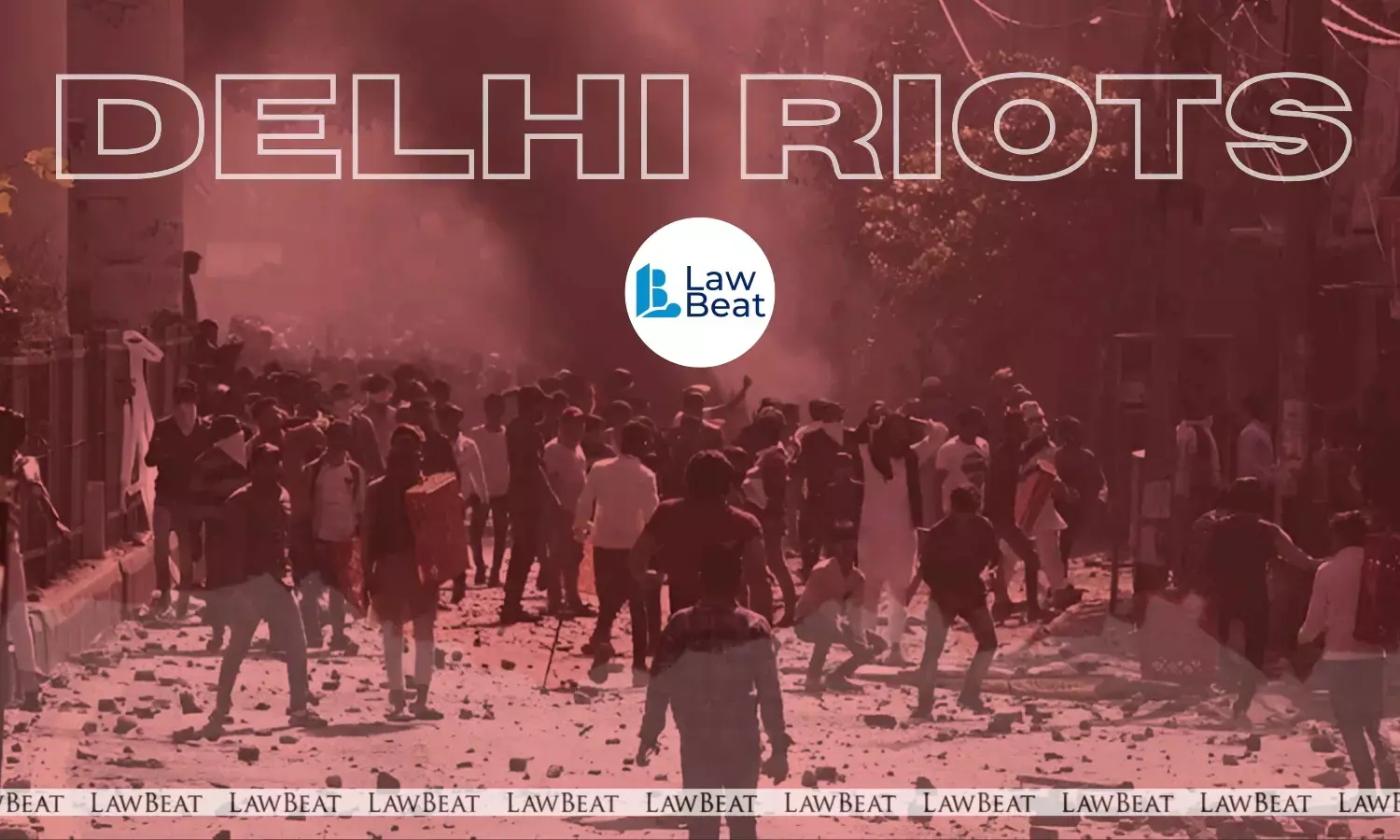2020 Delhi Riots: Court Convicts Six for Rioting, Arson and House Trespass

Delhi court held them guilty under IPC sections including 147, 148, 149, 435, 436 and 450
A Delhi court has convicted six men for rioting, vandalism, arson and house trespass during the 2020 North-East Delhi riots, holding that they were part of an unlawful assembly that set ablaze articles in a shop in Khajuri Khas.
Additional Sessions Judge (ASJ) Praveen Singh of Karkardooma Courts found Hariom Gupta, Basant Kumar Mishra, Gorakh Nath, Rohit Gautam, Kapil Pandey and Bheem Sain guilty of multiple offences under the Indian Penal Code (IPC), including Section 188 (disobedience to order duly promulgated by public servant), 147 (rioting), 148 (rioting armed with deadly weapon), 149 (unlawful assembly), 435 (mischief by fire), 436 (mischief by fire to destroy house), and 450 (house trespass).
The case stemmed from FIR No. 247/2020 registered at Khajuri Khas police station on the basis of a complaint filed by Mohd. Wakeel, who alleged that rioters had set fire to his shop, destroying all articles inside. Wakeel claimed losses of around Rs. 1.5 lakh due to the violence.
After examining the evidence and testimonies, the court concluded that the six accused had acted together as part of an unlawful assembly with the common object of committing riot and arson.
“The proven act of the unlawful assembly of which they were a part was that the mob of rioters acted in unison, vandalized and burnt articles of Wakeel’s shop, with the common object to commit riot, arson and mischief,” ASJ Singh observed in the judgment.
The court found that the mob had forcibly broken open the complainant’s shop and set fire to the articles inside. This act, the judge held, clearly amounted to rioting and mischief by fire.
The judge further noted that the assembly was “armed with lathis and dandas etc., which if used by the mob could have been deadly weapons.” By carrying such weapons, the unlawful assembly attracted the charge of rioting while being
The court underlined that the essential requirement of Section 149 IPC; that members of an unlawful assembly share a common object, stood satisfied in the case.
“The common object of the unlawful assembly, as discussed earlier, was to cause damage to the property, and an act in furtherance of this mischief was done whereby the articles from the shop of the complainant were taken out and set afire,” the Court said.
The ASJ reasoned that the coordinated conduct of the accused, their presence in the unlawful assembly, and the destruction of property together proved their liability under Sections 435, 436 and 450 IPC as well.
Holding the prosecution evidence sufficient to establish guilt, the court convicted all six men. The matter has now been listed for September 19 for hearing arguments on the point of sentence.
The conviction is one among several judgments delivered by trial courts in cases arising out of the February 2020 communal riots in North-East Delhi, which left over 50 people dead and hundreds injured. Courts have consistently underscored the liability of individuals who form part of unlawful assemblies that indulge in arson, vandalism and violence, even if specific overt acts are not attributed to each accused.
In this case, the Court’s reliance on the principle of common object under Section 149 IPC played a central role in securing the convictions, with the judge making it clear that coordinated mob violence could not be treated as spontaneous but as a deliberate act of collective evidence.
Case Title: State v. Hariom Gupta & Ors.
Judgment Date: September 11, 2025
Bench: ASJ Parveen Singh
